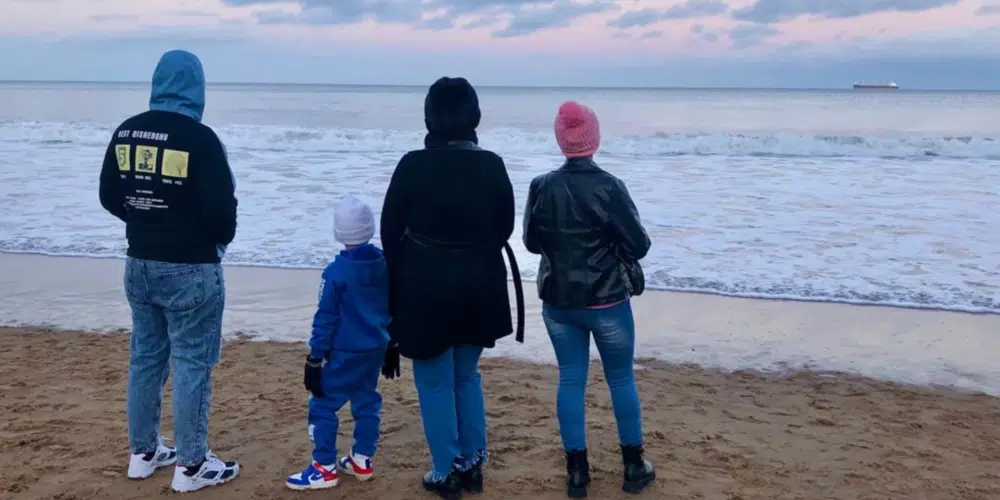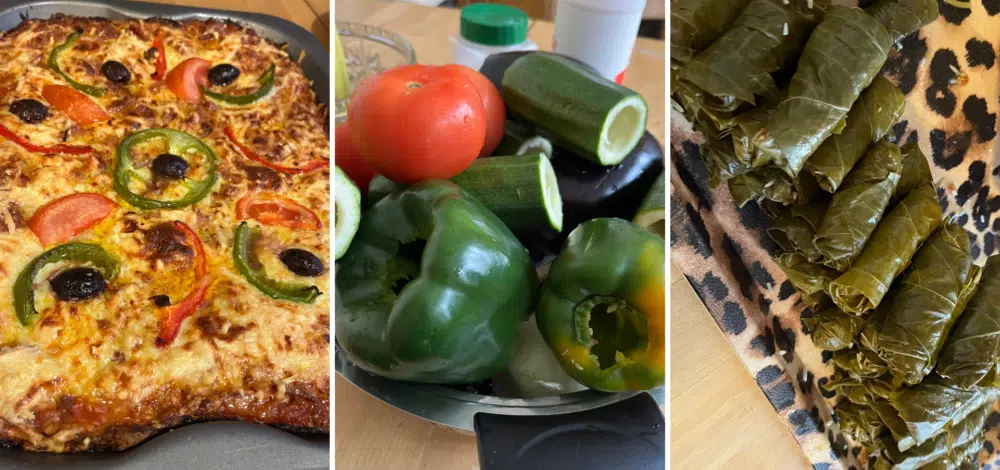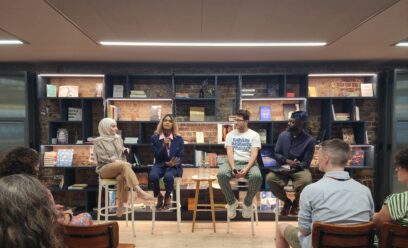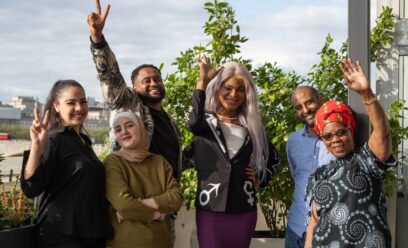Five positive life lessons from a Community Resettlement volunteer
Posted by Katie Bryson on February 9, 2023IMIX Communications Coordinator Katie Bryson writes about what she’s learnt since she became involved in her local Community Resettlement* group in the North East.
As someone who has been working in the refugee sector for a few years now, the desire to do something tangible within my own community has always played on my mind. So, last summer I signed up to join Tyneside Welcomes, a refugee resettlement charity started by a small group of volunteers in the North East, who help families displaced by conflict to set up a fresh life in the local community.
Tyneside Welcomes have already successfully resettled a family from Syria in Forest Hall, a family from Iraq arrived in Gateshead in November, and our Palestinian family of seven landed in North Shields in December.
I will keep them anonymous as I want to respect their privacy while they’re still very much in the settling-in phase, but I also wanted to share some of the life-affirming lessons I’ve taken from this experience.
1. People want to help – just give them an outlet
There are a dedicated group of trained volunteers in each location, with people assigned roles to provide specific support with sorting out things like housing, schools, health and access to benefits. It really is a huge undertaking BUT so incredibly rewarding at the same time.
That sense of communities rallying around to support those in need that came to the forefront during the pandemic, is still very much alive and kicking. At a time when Westminster doesn’t have kindness on their agenda, it’s really empowering to take matters into your own hands at a local level. To do something tangible for and with real people in your community. It restores your faith in humanity – they’re not all crazed right-wingers spitting bile about asylum seekers on the local Facebook page.
2. Welcome crosses the divide of religion and cultures
Many volunteers for our branch of Tyneside Welcomes attend a local Roman Catholic church, yet the family we have welcomed are Muslim. There is huge respect for each other on both sides, and the congregation’s generosity and warmth are an agreeable contrast to the harsh cold winds that blow around North Shields!
When I visited the family in the first weeks in their new home we sat and enjoyed beautiful tiny cups of strong Turkish cardamom coffee next to their Christmas tree attempting to chat via the frankly life-saving Say Hi translation app!
Their Middle Eastern hospitality and kindness is off the charts as is their appreciation for their new home where they feel safe and warm.
3. It takes team work to make the dream work
Trying to navigate the benefits system, setting up bank accounts, accessing healthcare, English classes and education for a family of seven has been intense to say the least. It’s a lot of work for a small group of volunteers, but I never cease to be blown away by how everyone digs deep and gives their time to get our family on the road to feeling settled and part of their new community.
What makes me sad is knowing how hard it will be for people seeking sanctuary in the UK outside of resettlement schemes who are alone and don’t have the support from a group of community resettlement volunteers – making their dreams harder to realise.
4. It helps you see your own area through fresh eyes
I’m incredibly proud of where I live – the coast up here in North Tyneside is absolutely stunning and Newcastle is a handsome and lively city. But welcoming a new family means you discover things many people won’t realise were here, like the grass roots organisations set up to support people on the margins.
One of these is the wonderful Walking With Drop-in at Wallsend who support asylum seekers and refugees with free English classes, fun activities as well as clothing and food supplies. Most of the family are still on the waiting list for English classes at the local college, so being able to access them at the drop-in is absolutely brilliant – and also essential for proving they are learning English in order to claim Universal Credit.
Then there’s the brilliant Northumbria Youth Action who provided the family with reconditioned bikes which means their teenage daughter can cycle to school, the boys can zoom down to the shops for a loaf of bread or take themselves off to the local swimming pool! Freedom, independence and confidence quickly gained just from a set of wheels – not to mention the money saved in bus fares.
I can’t tell you how joyful it was seeing them out on their bikes with massive smiles on their faces when they first got them.
5. The tasty benefits of new friendships
I moved up to the North East from London eight years ago and I’ve really missed the diversity of my neighbourhood and the delicious food that came with it. I’m a passionate cook so I’m delighted to be spending my Saturday afternoons gathered around the family’s kitchen table learning how to cook Palestinian cuisine as we find out about each other’s lives.
We’ve made Dolma (stuffed vine leaves) and Middle-Eastern style pizzas – they told me back in Iraq they’d take their home-made pizzas to cook in the local bakery’s oven. Next time we’re going to tackle Chick Barak (yoghurt soup with dumplings) which is apparently next level tasty. Although, I was surprised to learn that Macaroni Cheese is also one of their favourite dishes too!
Despite our incredibly different backgrounds, the more time I spend with the family the more we seem to have in common. It’s the little things. Friday night is takeaway night, they find SnapChat filters hilarious, and their boys are obsessed with PlayStation Games just like mine.
It’s a far cry from the horrible headlines I spend my working day consuming, and a welcome reminder of the best of humanity that exists in our local communities.
*Community Sponsorship was first launched by the UK Government in 2016 in response to the Syrian refugee crisis and allowed local people to play a direct role in supporting refugees. Community Sponsorship groups then rapidly appeared across the country and in the first five years of the programme more than 150 groups welcomed almost 700 refugees.
This led on to the launch of the broader UK Resettlement Scheme in 2021 which focuses on resettling those who are registered with UNHCR in host countries in the Middle East, North Africa and elsewhere. The UKRS was designed to welcome the most vulnerable families who have been waiting the longest for resettlement.
Find out how you can get involved with community resettlement in your area with RESET UK.




